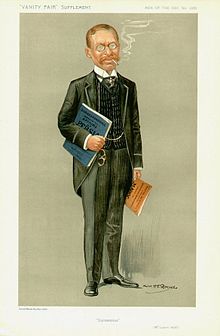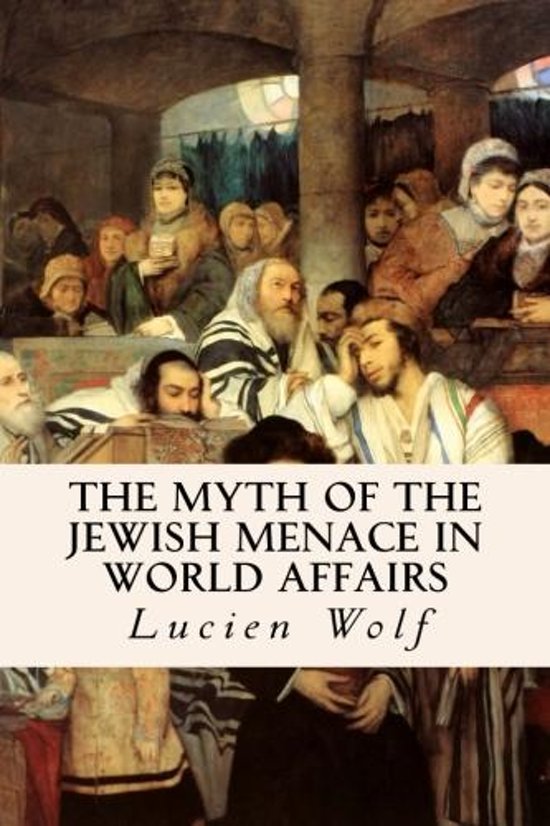When rich Jews belonged and poor Jews were aliens
Jewish men in Whitechapel, east London, march in 1919 in protest against the killing of Jews in Poland. Photo by Getty
Schama on Balfour and the birth of Israel
A century on, one of Britain’s great historians assesses the hopes, dreams and horrors that led to the creation of a Jewish homeland
By Simon Schama, Financial Times
November 02, 2017
EXTRACT
My father was 16 years old, just two shy of being conscripted for the trenches, when he — and the rest of Whitechapel — heard about the Balfour Declaration. The initial response of Chaim Weizmann, the Zionist leader, was disappointment. “Well I did not like that boy at first,” he wrote in his memoir, “he was not the one I had expected.” Weizmann had wanted “establishment” to be altered to “re-establishment”, by which “the historical connection with the ancient tradition would be indicated and the whole matter put in its true light”. That true light was meant to shine on something nobler than an opportunistic transaction of imperial strategy.
When the Balfour document was made public my father saw the same singing and dancing erupt in the streets of the East End, from Mile End to Whitechapel
A week later, when the document was made public by the Zionist Federation, my father saw the same singing and dancing erupt in the streets of the East End, from Mile End to Whitechapel. Something propitious, something providential, had happened, but also something against the odds.
At the time of the declaration there were probably only about 5,000 members of the Zionist Federation across the country and the organisation’s offices were a few small rooms on Piccadilly. But equally there is no doubt that emotional support was much broader. If British Zionism did not make the declaration, not unaided anyway, there is no doubt at all that the declaration made British Zionism. A place the Jews could call their own swam into excited vision, and not a colony in east Africa but the birthplace they had never relinquished in memory, ritual, language.

The Mackworth Arms, Commercial Road, a popular East End Jewish haunt. Simon Koski [Kosky] was the landlord in 1921, with his wife Nancy; his successor from 1923 was Nathan(n) Dubosky, whose wife always had a plentiful supply of latkes on the counter, so it was known as ‘Latke House’. It later became a Watney’s house, and closed in 1984. Info from Street directory of Commercial Road, South Side. Photo from Getty.
That East End street party — “a kosher knees-up”, Dad called it, lots of fried fish, cake and shouting — was all instinct and no thought, but then sometimes instincts are the real story. Arthur remembered the “Hatikvah” being sung outside a synagogue close to the family house. A month later the same song brought the crowd to their feet in the Royal Opera House. My father stood outside amid a huge throng beside sacks of the next day’s cabbages.
He knew all about the Jewish opposition: anti-Zionists, the grandees of the Anglo-Jewish Association and the Conjoint Committee — Claude Montefiore and those Rothschilds, Leopold in particular — who were on the wrong side of the argument. He was especially horrified by the public accusation of Edwin Montagu, one of the two Jewish members of the Cabinet (the other was the pro-Zionist Herbert Samuel), that the Balfour Declaration was tantamount to being antisemitic, since in Montagu’s eyes it presupposed divided loyalties, especially heinous during the war.
Others among the anti-Zionist lobby felt the same way, in particular the historian Lucien Wolf, who had actually been questioned about his true nationality by a policeman in 1915 and never quite got over it.


Lucien Wolf’s book, published by Macmillan in 1921, was sub-titled “or, The truth about the forged Protocols of the elders of Zion”
For my father, the defensiveness of the anti-Zionists was a symptom of the gulf dividing West End Jews from East End Jews. The declaration’s 67 words, he thought, could be boiled down to one — the word “home”, bayit. It was all very well for the likes of Edwin Montagu to complain that their indivisible sense of a British home was now vulnerable to charges of divided allegiance, but Montagu’s home was manorial: avenues of oak and elm, game birds flushed from the bracken, dropping to Home Counties guns.
For my father, who had shul on Shabbes and Shakespeare on Sundays, it was perfectly possible to be indivisibly British and Jewish; British and Zionist. In fact his whole life and those of all his friends were built around that unproblematic possibility. The meeting of minds, as he supposed there had been, between Arthur Balfour and Chaim Weizmann, between the philosophical patrician politician and the “little yid” from Motol, as Weizmann described himself, was not only possible, but somehow a historically predestined fit. Britain was, after all, a country in which a Jew, thinly disguised as a church-goer, had been twice prime minister, the towering figure of Victorian conservatism.
Everything turned then, as it still does, on that one emotively loaded word, “home” — both for celebrants and mourners. For Jews it was as if the doors of the ancestral home where Hebrew and Judaism had been created had finally been opened after being barred and locked — most recently in the 1880s, when the Ottoman Empire put severe restrictions on immigration to Palestine.
But for the Palestinian Arabs the establishment of a Jewish national home already seemed an early notice of eviction. Whether or not that pessimism was justified at the time or whether it became a tragically self-fulfilling prophecy is still being argued. But in the midst of our unapologetic celebrations, we owe it to the moral case for the declaration to put ourselves in Palestinian shoes as well as our own.
For the poorer Jewish communities of London and the provinces, the terror of homelessness was not just a debating point. Many had come recently from the terror of pogroms in Russia and Romania, or had witnessed the rise of political antisemitism in cities like Vienna. They were altogether less sanguine about domicile being granted in any but a provisional and conditional way.
John Buchan’s Thirty-Nine Steps – a thinly disguised version of the global Jewish conspiracy
Even in Britain there were reasons for apprehensiveness. There were antisemitic riots in Bethnal Green and Leeds in 1917. In the National Review there was always space for literary anti-Semites such as John Buchan (whose Thirty-Nine Steps was a thinly disguised version of the global Jewish conspiracy), Hilaire Belloc and GK Chesterton to vent their witty malice. The anti-immigrant demagoguery of organisations like the British Brothers’ League had pressured the Conservative government led by Balfour himself to enact an Aliens Act in 1905, imposing strict curbs exactly at the time when they would be most damaging.
In 1914, the Aliens Restriction Act had made those controls even tighter. Jews have not been the only people to have suffered uprooting. But they have been the only people in the world eternally unable to find a place where shelter would not be given on sufferance. ….
The East End, too, had a good idea of what was unfolding on the Eastern Front of the war, where millions of Jews found themselves caught between the rolling military machines of the Austro-Hungarian army on the one side, and the Russians on the other. No fewer than 600,000 were deported from territory in the war zones, especially in the Ukraine.
These upheavals were accompanied by other merciless pogroms, especially murderous when the Russian army was in retreat. Estimates of the civilian Jewish dead range from 50,000 (the most conservative figure) to as high as 200,000.
The Russian Revolution brought no respite; the opposite in fact. The civil war saw 1,300 separate pogroms perpetrated by the Whites, the anti-Bolshevik Volunteers and the Poles; 106 by units of the Red Army, in particular Budenny’s 1st Cavalry. When Red Army officers tried to stop the attacks they were either stabbed or shot. When Jewish fatalities from the two back-to-back wars are put together they could come to half a million. So Jews could be forgiven for thinking there was no safe position for them to take and in extremis nowhere for them to go.
Jews have not been the only people to have suffered uprooting. But they have been the only people in the world eternally unable to find a place where shelter would not be given on sufferance, conditionally, provisionally, liable always to be withdrawn, terminated along with many lives, at short notice. No one in countries inheriting the legacy of the expulsions and the doors shut against the desperate — as they were in Britain after the Aliens Act or as they were in the US after 1921 — is in a strong position to question Zionism’s legitimacy.
To continue reading Simon Schama’s article go to Simon Schama on Balfour and the birth of Israel or, if you don’t have a subscription, buy a paper copy or access one in your library.

